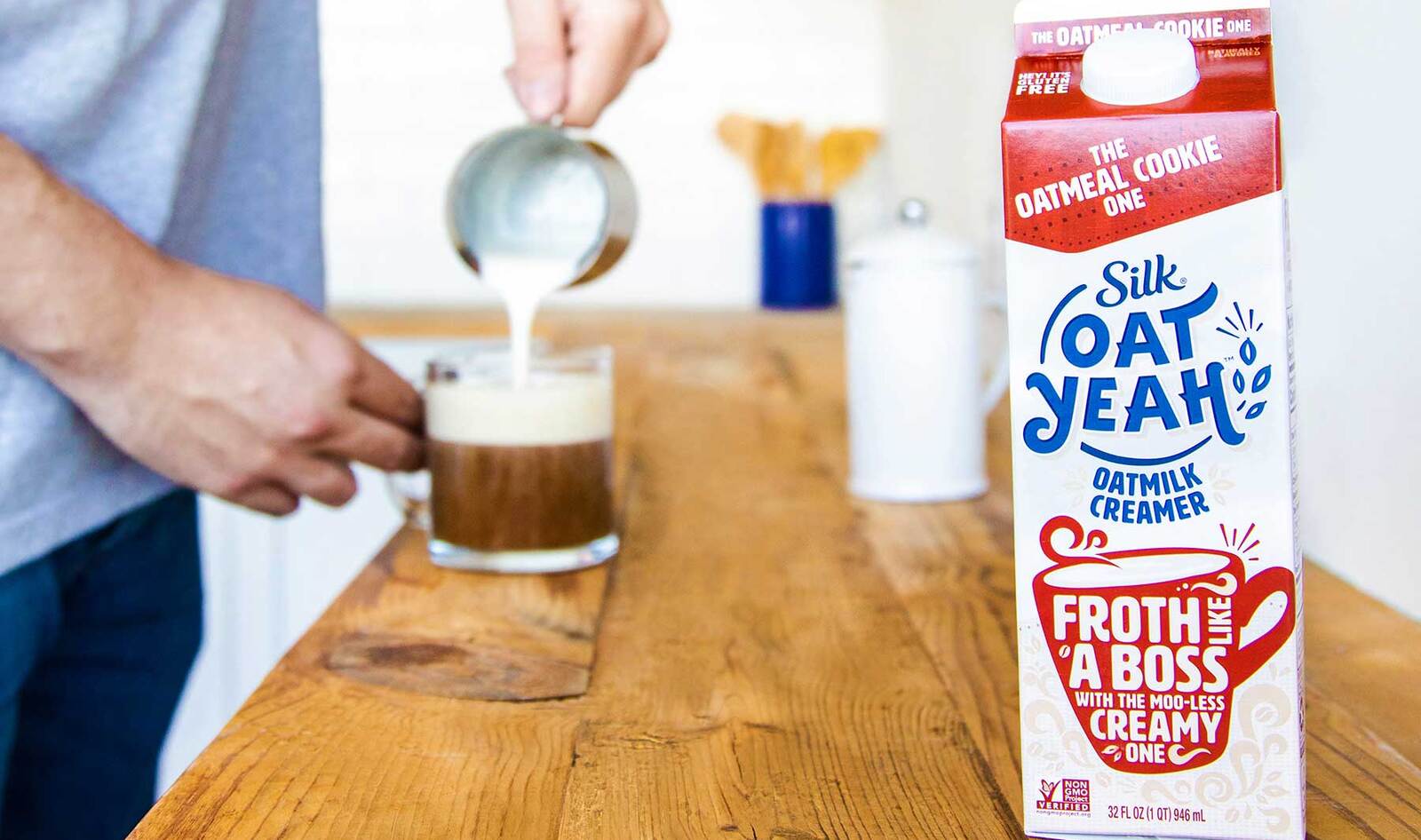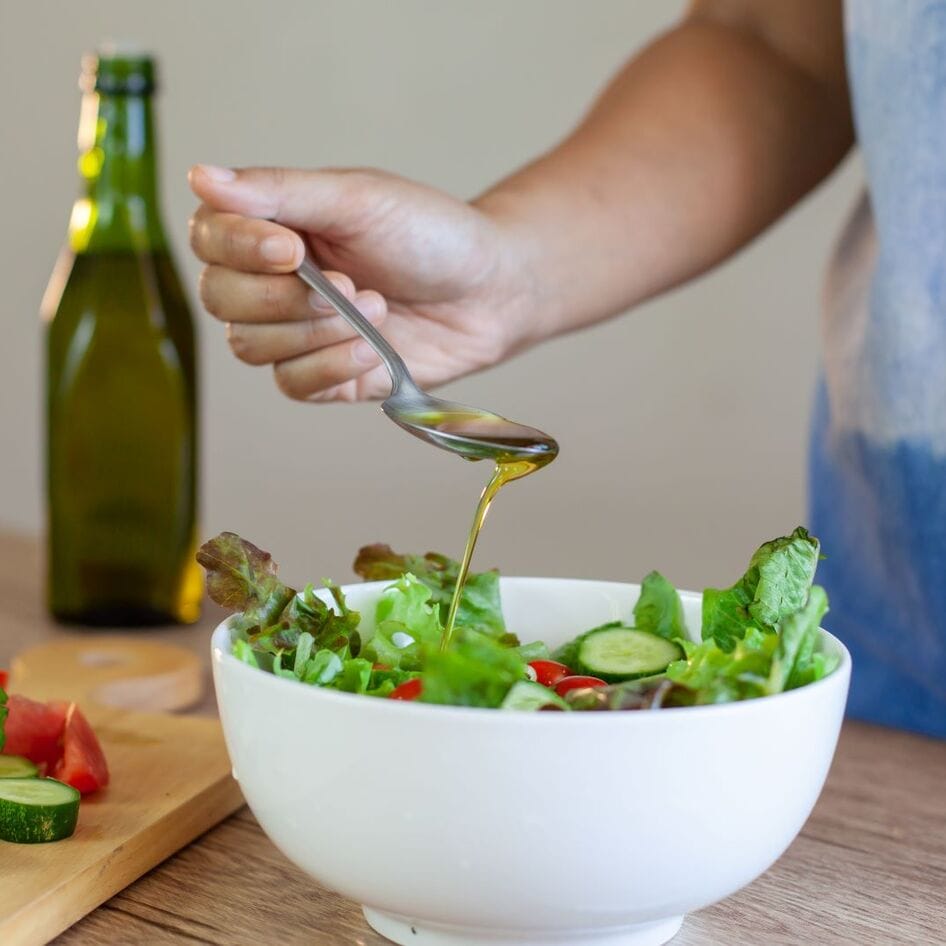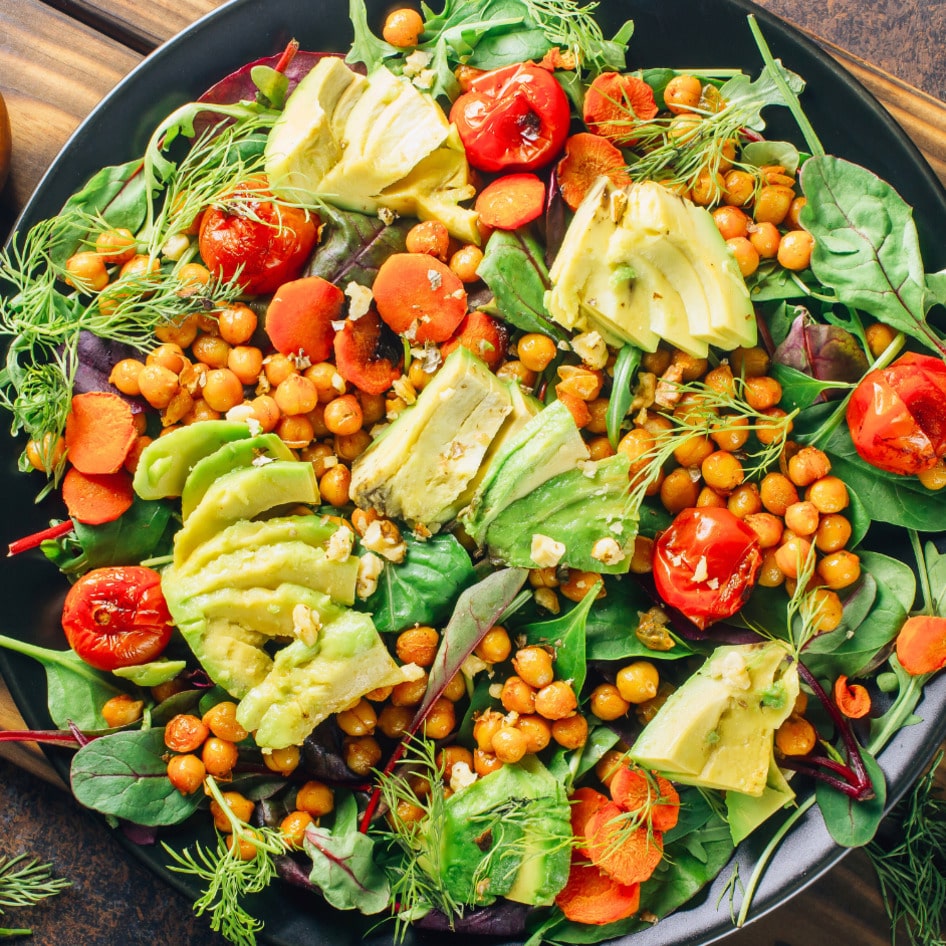Many plant-based alternatives were developed to give consumers an animal-free version of foods such as meat, milk, and eggs. While these alternatives serve consumers looking for cruelty-free options, and those looking to make more environmentally sound choices, some are not developed with nutrition in mind.
International company Danone is looking to change that with its portfolio of products, which in North America include plant-based brands Silk, So Delicious, and Vega. Last year, the company also acquired Earth Island, the parent company behind Follow Your Heart, a pioneering vegan brand that makes Vegenaise, egg alternative VeganEgg, and a variety of dairy-free cheeses, dressings, and more.
Danone has been working to improve its dairy alternatives for some time and is already working with biotech company Brightseed to improve nutritional content of its plant-based products.
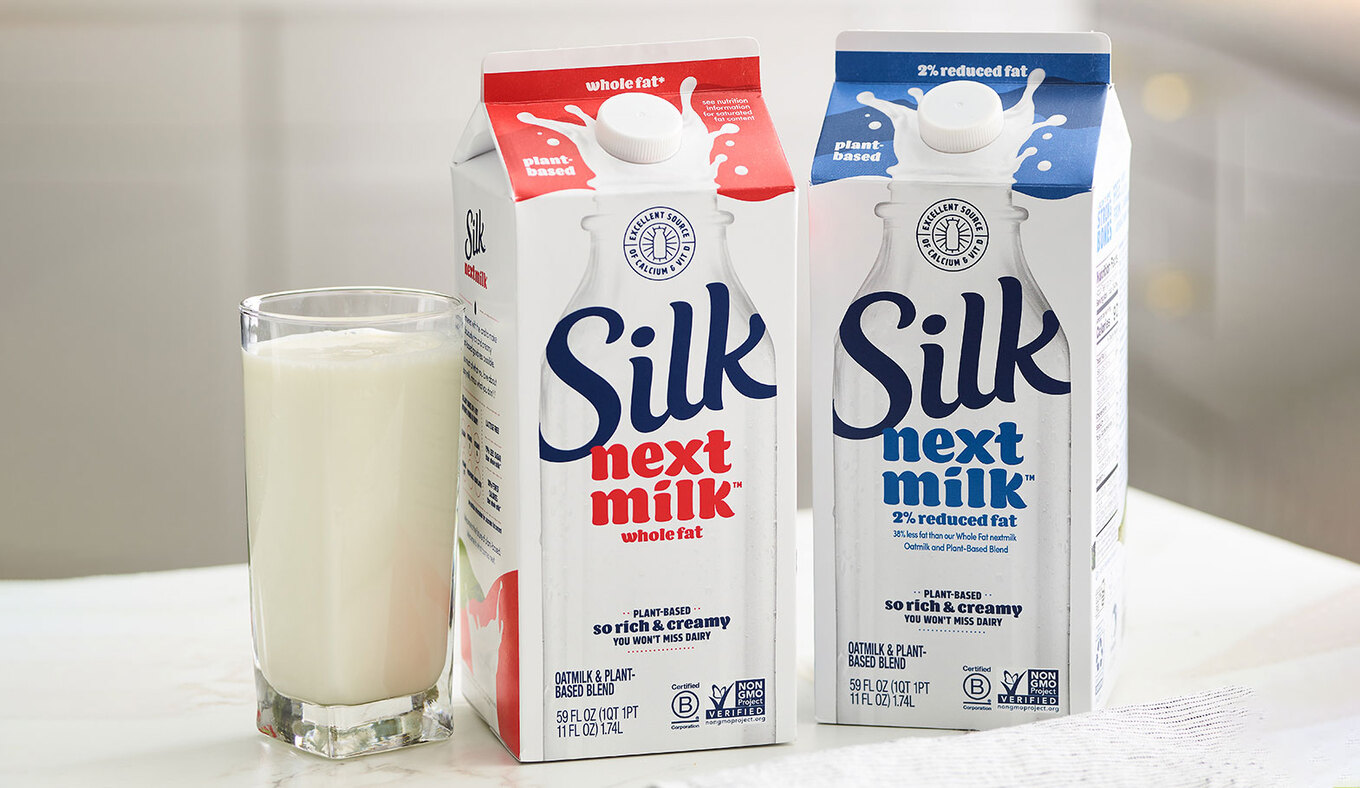 Silk
Silk
Now, the food and beverage giant is investing $22 million in wellness initiatives it plans to carry out by 2030, including the reformulation of more than 70 percent of its plant-based beverages to increase their nutrient density.
Danone announced this initiative at the recent White House conference on Hunger, Nutrition, and Health, which aims to catalyze a concerted effort to eradicate hunger and food insecurity in America.
“At Danone, our mission to bring health through food to as many people as possible is embedded into everything we do, and for the last 50 years, we’ve worked to create both shareholder and societal value through what we call our Dual Project,” Shane Grant, CEO at Danone North America, said during a conference at the White House this week. “The investment we announced today illustrates our mission in action.”
 So Delicious
So Delicious
As part of its wellness initiative, Danone is dedicating $15 million to nutrition education for consumers and healthcare providers; $4 million to enhance nutrition and food security research through grants, industry collaboration, and non-profit organizations; and $3 million to improve access and affordability of nutrient-dense and health-promoting products, especially for those in underserved communities.
Danone’s dairy-free products get “healthier”
Danone made commitments to reformulate its plant-based products in light of a proposed rule by the Food and Drug Administration (FDA) that aims to update the usage of the term “healthy” on food labels.
At the conference, the government agency proposed that the usage of “healthy” be updated to be consistent with current nutrition science and federal dietary guidance. As such, the FDA wants to shift the focus of healthy claims onto foods that contain a meaningful amount of whole foods (it cites fruit, vegetables, grains, dairy, and protein foods) rather than nutrient-poor foods fortified with vitamins (such as white bread with calcium added).
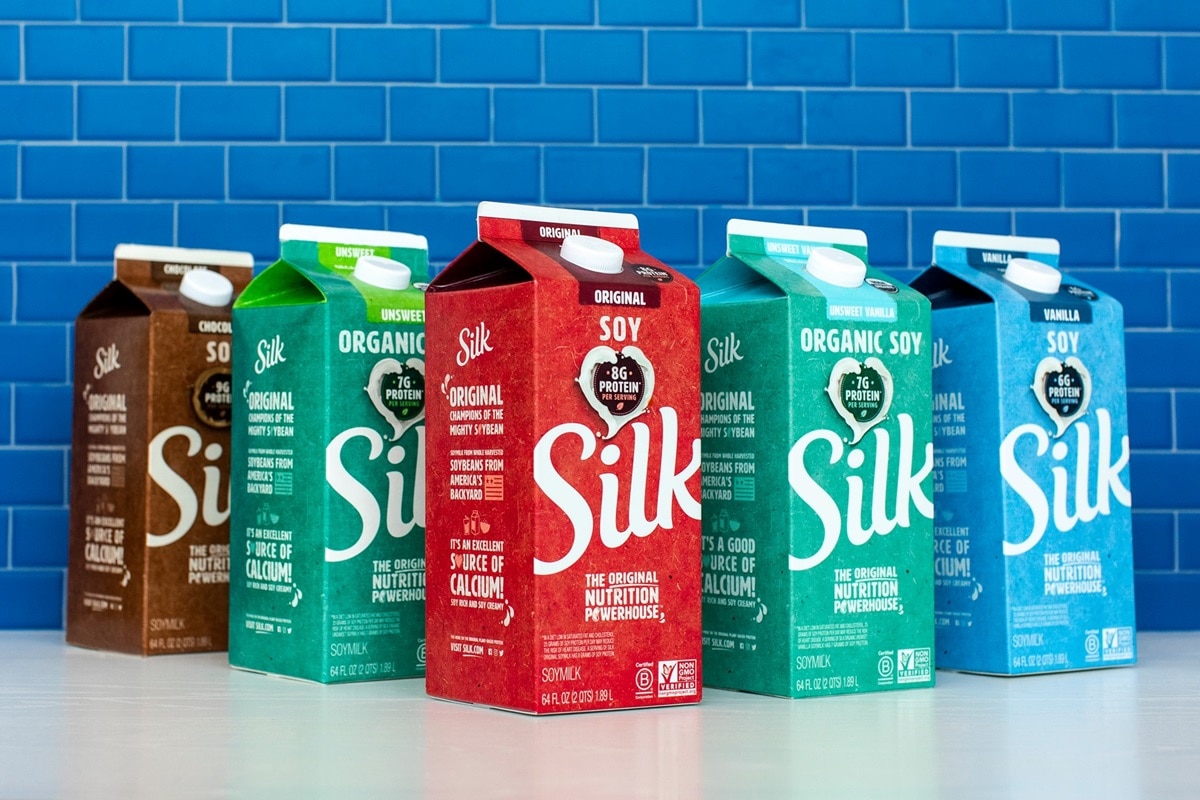 Silk
Silk
In its proposed definition, the FDA allows for the dairy category to include lactose-free alternatives such as fortified soy milk and dairy-free yogurts to allow for health claims on products made for people who abstain from dairy.
The FDA’s new definition also seeks to maintain the prior definition’s limits on sodium and saturated fat but aims to impose a new, lower limit on added sugar. At the conference, Danone also announced that 95 percent of its children’s products (by kilotons sold) will have a total sugar content at or below 10 grams per 100 grams of product.
Through its lobby group International Dairy Foods Association, the dairy industry has already pushed back on the FDA’s proposed definition of “healthy”, claiming certain dairy products should be allowed higher sugar content to make them palatable.
Is dairy healthy?
The FDA’s proposed definition of “healthy” includes an emphasis on foods recommended in the Dietary Guidelines for Americans. Published every five years by the US Department of Agriculture (USDA), the current version of the 2020 to 2025 guidelines includes a recommendation for three servings of dairy products daily.
When these guidelines were published in December 2020, the Physicians Committee for Responsible Medicine (PCRM)—a group of 1,200 doctors—immediately took the USDA to task for continuing to push dairy products.
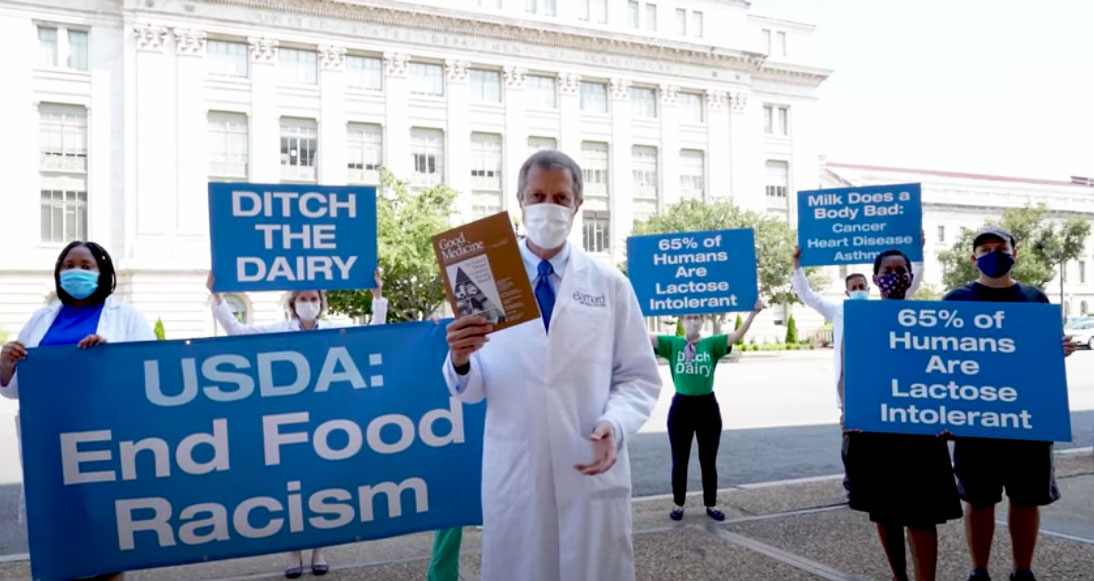 PCRM
PCRM
For decades, PCRM has protested this issue, citing mounting research around dairy’s link to cancer, among other illnesses. PCRM also notes that promoting dairy to Americans as a health food amounts to dietary racism as lactose intolerance disproportionately affects people of color.
This is based on the National Institutes of Health estimates that 95 percent of Asian Americans; 60 to 80 percent of Black Americans and Ashkenazi Jewish people; 80 to 100 percent of Native Americans; and 50 to 80 percent of Hispanic Americans are lactose intolerant.
While some discussion around plant-based foods arose, the recent White House conference on Hunger, Nutrition, and Health relied on the Dietary Guidelines for Americans as canon, an issue that is problematic, particularly in light of discussions of what the new definition of “healthy” might be.
“Little attention was paid to the desperate need to update the Dietary Guidelines for Americans to educate Americans about what plant-based diets can do for them and their families,” PCRM wrote in a blog post about the conference. “Since so many meals in schools and other institutions follow the guidelines, ditching meat and dairy would make a huge impact, especially for young children.”
For the latest vegan news, read:
JUMP TO ... Latest News | Recipes | Guides | Health | Subscribe

